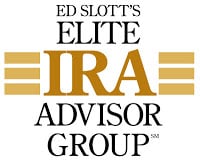If you have an IRA, you have access to your money at any time and for any reason (unless the IRA custodian has limits on your access). Unlike an employer retirement plan, such as a 401(k) or pension plan, you don’t have to ask anyone if you can take money out of your IRA to pay some bills. Your IRA is completely under your control, and no one can stop you from taking a distribution. But there are risks when you use your IRA funds for personal expenses during the 60-day rollover period.
You are under age 59 ½ and need funds from your IRA to live on. You set up an early distribution payment plan that will be exempt from the 10% early distribution penalty (called 72(t), SOSEPP, or SEPP payments). You now want to move that account from your current IRA custodian to a new one. Can you do that? Click to find out.
Ed Slott and Company IRA Technical Consultant Jeffrey Levine discusses 3 key factors you need to know when planning or thinking about a Roth IRA contribution. You can view the video below and make sure to subscribe to our IRAtv YouTube page for the latest IRA, retirement and tax planning videos.
IRA distributions that you take before age 59 ½ are considered early distributions that are subject to an IRS 10% early distribution penalty unless an exception applies. For IRAs, there are many exceptions to the penalty including death, disability, higher education, and others. A lesser known exception to the penalty applies if you use IRA funds to buy your first house.
Approximately half of all Americans work for employers that currently don't have a retirement plan. That works out to be around 78 million employees. This issue, combined with a declining national savings rate and the projected funding problems of the Social Security system, has forced some lawmakers to propose ways to entice Americans to increase their savings for retirement. One example of such proposed legislation is the Automatic IRA.

This week's Slott Report Mailbag focuses on Roth IRAs and answers some of the more popular questions we receive. Should I go through with a Roth IRA conversion? Do I have to take required minimum distributions (RMDs) from my Roth IRA? Click to read a Q&A with our IRA Technical Expert.
When managing your retirement account, you should be aware of the unexpected ways those employer-sponsored or IRA accounts could actually COST you. Jeffrey Levine details 3 of those situations in the article below.
On May 22nd, Congressman Richard E. Neal (D-MA) introduced H.R. 2117, The Retirement Plan Simplification and Enhancement Act of 2013, in the House of Representatives. H.R. 2117 is proposed legislation that is intended to boost retirement savings.

Ed Slott's Elite IRA Advisor Group is a membership group of financial advisors who are committed to their IRA education and serving their clients' best financial and retirement planning interests. At our last workshop this May in Dallas, Texas, Ed Slott and Company IRA Technical Consultant Jeffrey Levine spent some time with several members to get their perspective on the educational expertise they receive and how it has elevated their standing in the industry and enhanced their business. Below are two roundtable discussions with seven members of Ed Slott's Elite IRA Advisor Group.
In late 2009 IRS started a project on rollovers as business start-ups (ROBS). This is a strategy that has been heavily marketed by several companies and targets individuals that want to finance business ventures using their retirement funds. They are directed to establish a self-directed IRA, a corporation, and a 401(k) plan for the corporation. The plan allows participants to roll in IRA funds.





